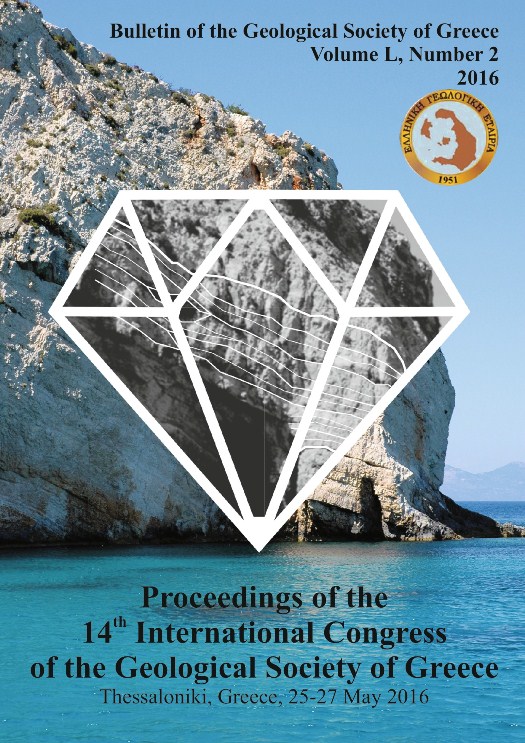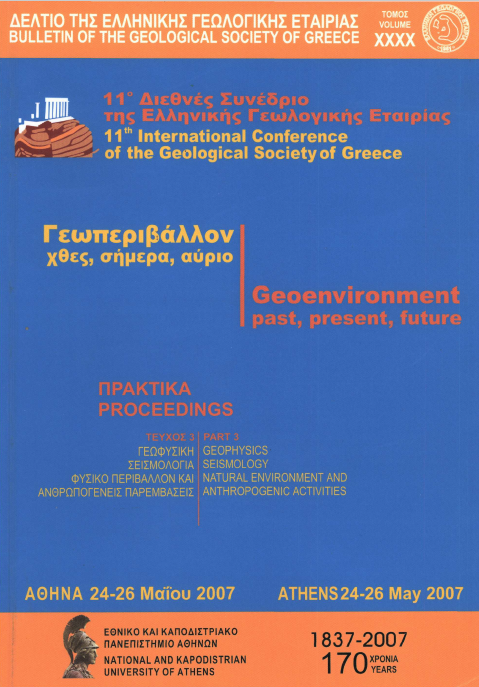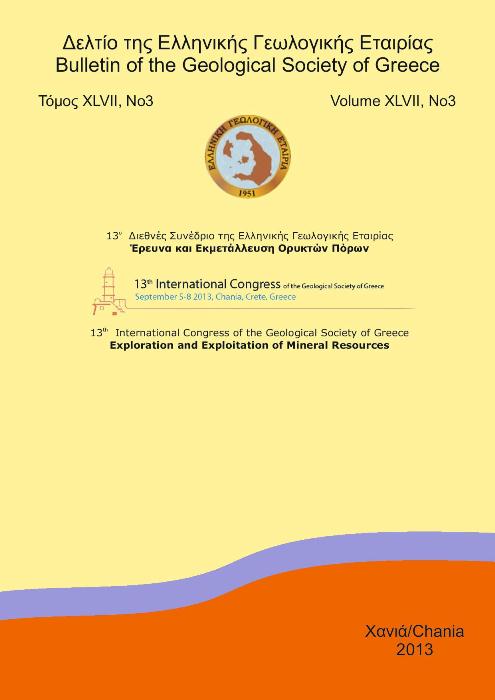S-WAVE SPECTRAL ANALYSIS AND ESTIMATION OF SPECTRAL PARAMETERS IN NORTHWESTERN GREECE
Résumé
During a 12-month period (August 1998 - June 1999), a dense microseismic network of 44 portable seismographs, was installed in Epirus - Northwestern Greece, by the Seismological Laboratory, of the University of Patras and recorded 1368 earthquakes. We selected a subset of 200 well recorded events, with duration magnitude ranging from 1.61 to 2.92 and focal depths ranging from a few hundred meters to 35km; the majority was in the 0-10km range. This study uses this high quality dataset to (i)calculate the earthquake spectra and source parameters; (ii) perform linear regression between Seismic Moment (M0) and the source parameters Source Radius (r), Stress Drop (Δσ) and Displacement (s); (iii) correlate source parameter’s distribution with the tectonics of the area. Finally, we compare the derived empirical laws with similar studies.
Article Details
- Comment citer
-
Stavroulopoulou, O., Sokos, E., & Tselentis, G. (2016). S-WAVE SPECTRAL ANALYSIS AND ESTIMATION OF SPECTRAL PARAMETERS IN NORTHWESTERN GREECE. Bulletin of the Geological Society of Greece, 50(3), 1232–1240. https://doi.org/10.12681/bgsg.11829
- Rubrique
- Geophysics and Seismology

Ce travail est disponible sous licence Creative Commons Attribution - Pas d’Utilisation Commerciale 4.0 International.
Authors who publish with this journal agree to the following terms:
Authors retain copyright and grant the journal right of first publication with the work simultaneously licensed under a Creative Commons Attribution Non-Commercial License that allows others to share the work with an acknowledgement of the work's authorship and initial publication in this journal.
Authors are able to enter into separate, additional contractual arrangements for the non-exclusive distribution of the journal's published version of the work (e.g. post it to an institutional repository or publish it in a book), with an acknowledgement of its initial publication in this journal. Authors are permitted and encouraged to post their work online (preferably in institutional repositories or on their website) prior to and during the submission process, as it can lead to productive exchanges, as well as earlier and greater citation of published work.








